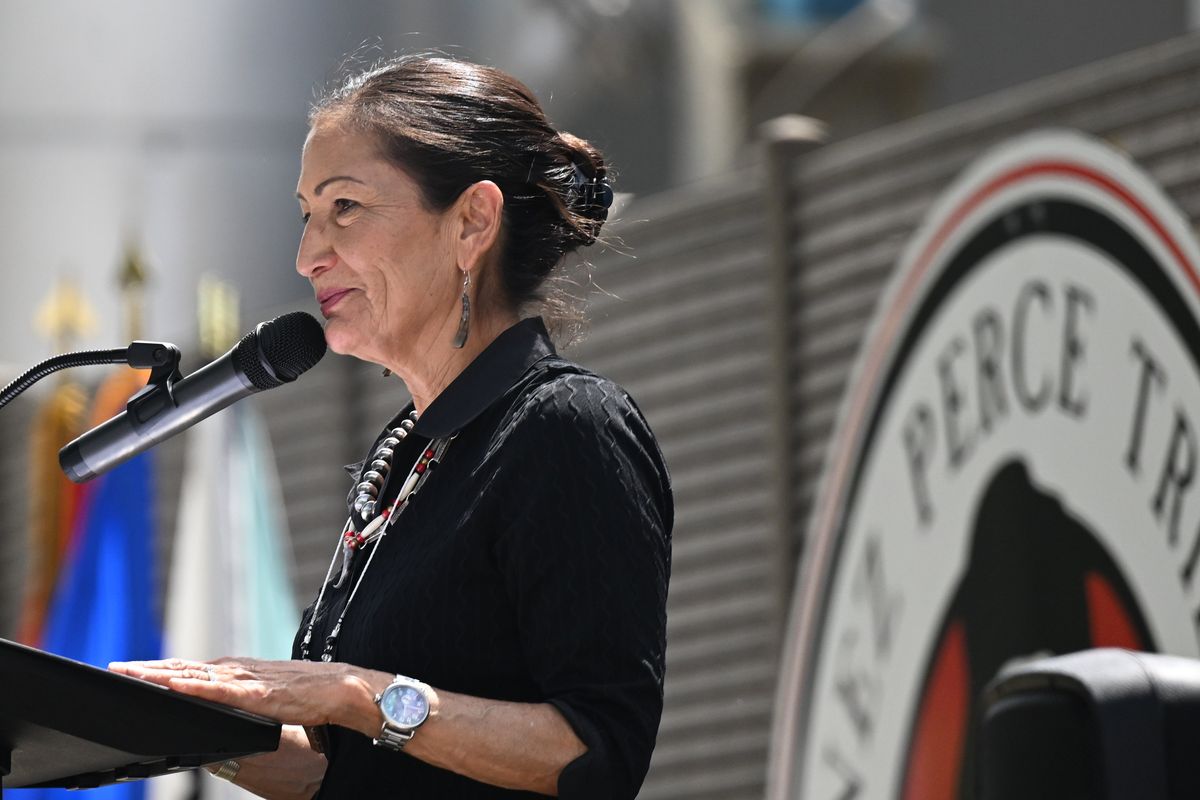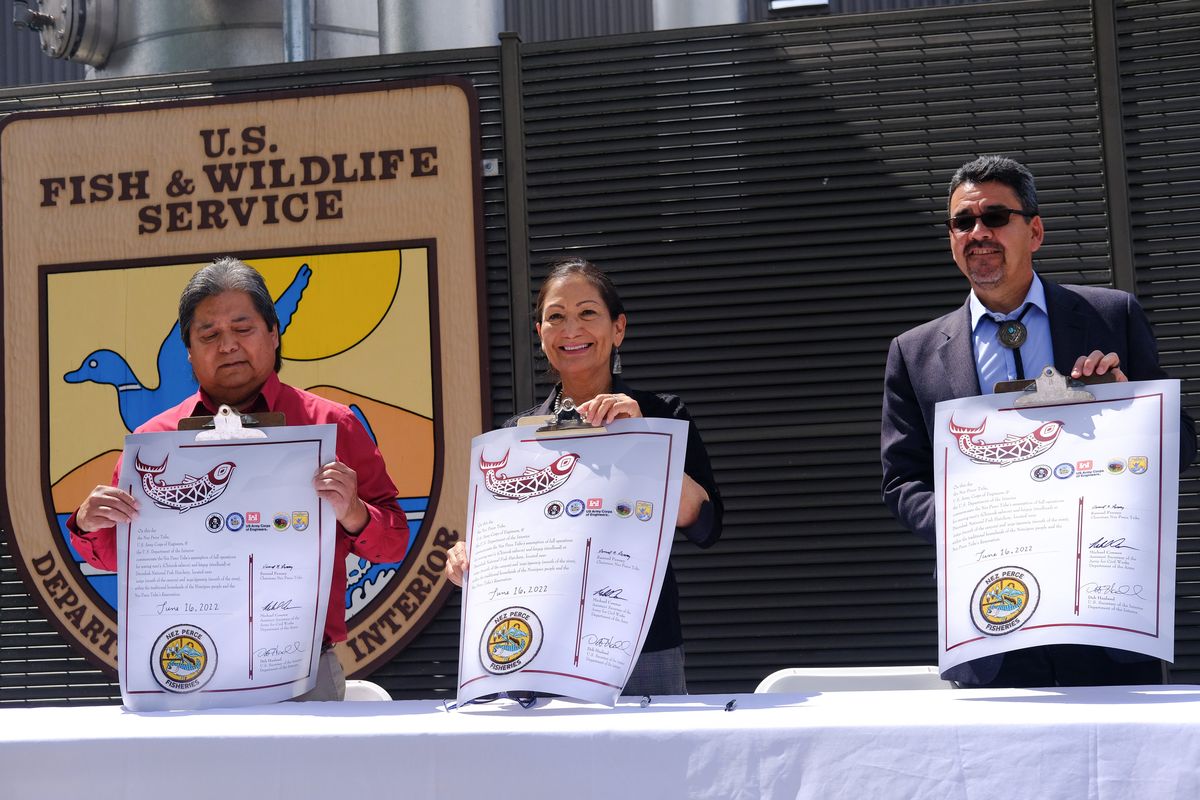‘New definition of progress’: Nez Perce Tribe takes over management of national salmon hatchery
Secretary of the Interior Deb Haaland speaks in June during a signing ceremony in Orofino, Idaho, for the Nez Perce Tribe to take over management of the Dworshak Fish Hatchery. (Tyler Tjomsland/The Spokesman-Review)Buy a print of this photo
OROFINO, Idaho – There was a fishing village here once.
Every spring, different bands of the Nez Perce tribe trekked to this spot, nestled between the pine-covered ridges along the Clearwater River. They’d fish for salmon like their ancestors before them.
The gathering wasn’t simply about catching chinook for food.
“It was an obligation,” said Nakia Williamson, director of the Nez Perce Tribe’s cultural resources program.
The tribe felt a responsibility to the fish that had sustained them for millennia. The obligation remains, Williamson said, and now the Nez Perce are sole managers of a national fish hatchery helping them fulfill it.
On Thursday, the U.S. Department of the Interior transferred management of the Dworshak National Fish Hatchery to the Nez Perce Tribe, also known as the Nimipúu. The tribe and the U.S. Fish and Wildlife Service previously co-managed the hatchery for 18 years.
More than a hundred visitors attended the transfer ceremony, including Secretary of the Interior Deb Haaland, the first Native American to serve as a Cabinet secretary.
“There is much to be gained when we respect and integrate Indigenous knowledge into our conservation initiatives,” she said.
Haaland signed the ceremonial transfer documents alongside Samuel Penney, chairman of the Nez Perce Tribe, and Mike Connor, a member of the Taos Pueblo and the assistant secretary for the Army Corps of Engineers’ civil works division.

“There is an advantage in that the tribe has such an invested interest,” said David Johnson, manager of the Nez Perce Tribe’s fisheries resource management.
The transfer won’t change how the hatchery’s funded, and the facility will continue raising millions of chinook, coho and steelhead every year. But it’s still a rare and dramatic shift. The transfer recognizes the tribe’s treaty rights and steadfast commitment to restoring salmon populations, which have plummeted during the last century largely due to construction of dams throughout the Columbia River Basin.
“What we’re protecting is not only a way of life,” Williamson said. “We’re protecting our identity, our language.”
Connor said the transfer is a sign of progress, though maybe not in the way some people define the word. It’s not a marvel of modern engineering, but turning over management of the hatchery to the Nez Perce Tribe, honoring treaty rights and prioritizing salmon restoration are progress, too, Connor said.
“Progress is not always building great works, great pieces of infrastructure,” he said. “It’s an honor to celebrate our new definition of progress.”

